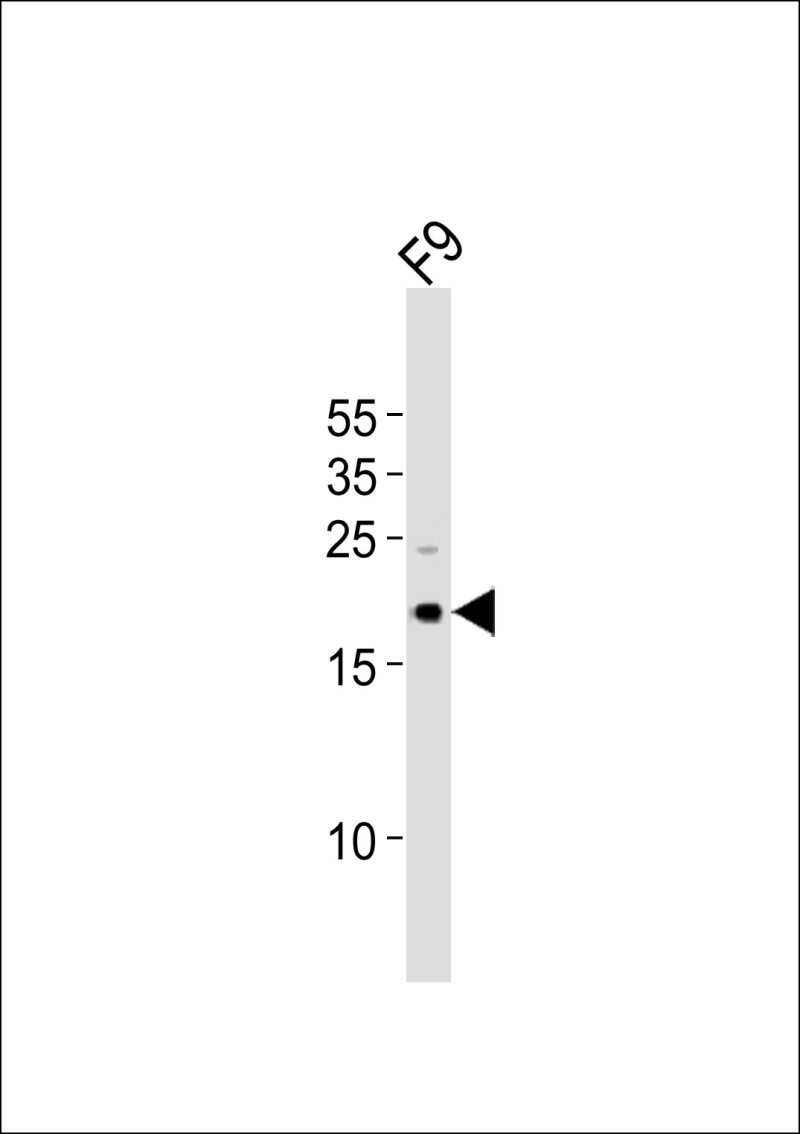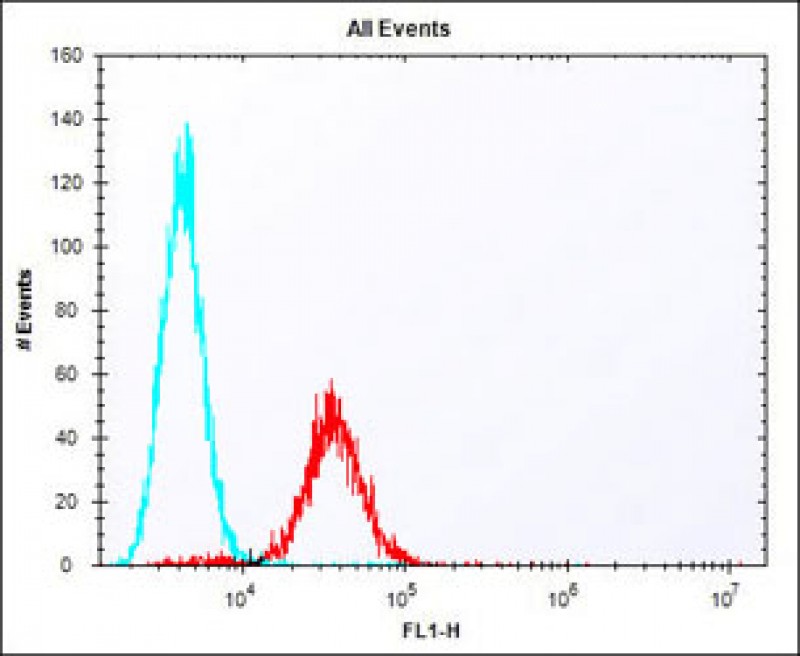

| WB | 1/1000 | Human,Mouse,Rat |
| IF | 咨询技术 | Human,Mouse,Rat |
| IHC | 咨询技术 | Human,Mouse,Rat |
| ICC | 技术咨询 | Human,Mouse,Rat |
| FCM | 1/25 | Human,Mouse,Rat |
| Elisa | 咨询技术 | Human,Mouse,Rat |
| Aliases | Teratocarcinoma-derived growth factor, Cripto growth factor, Epidermal growth factor-like Cripto protein, Tdgf1, Cripto |
| WB Predicted band size | 18.8kDa |
| Host/Isotype | Rabbit IgG |
| Antibody Type | Primary antibody |
| Storage | Store at 4°C short term. Aliquot and store at -20°C long term. Avoid freeze/thaw cycles. |
| Species Reactivity | Mouse |
| Immunogen | This Mouse Tdgf1 antibody is generated from a rabbit immunized with a KLH conjugated synthetic peptide between 37-70 amino acids from the N-terminal region of mouse Tdgf1. |
+ +
以下是关于小鼠Tdgf1 (N-term)抗体的示例参考文献(注:以下为模拟示例,实际文献需通过学术数据库检索获取):
---
1. **文献名称**: *"Characterization of a Novel Anti-Tdgf1 Antibody for Embryonic Stem Cell Research"*
**作者**: Zhang L, et al.
**摘要**: 本研究开发并验证了一种针对小鼠Tdgf1蛋白N端表位的高特异性多克隆抗体。通过Western blot和免疫荧光实验,证明该抗体可识别胚胎干细胞中内源性Tdgf1的表达,并发现其在早期胚胎发育中调控Wnt/β-catenin信号通路的作用。
2. **文献名称**: *"Tdgf1-Cripto-1 in Mammary Tumorigenesis: Antibody-Based Functional Analysis"*
**作者**: Watanabe K, et al.
**摘要**: 利用针对小鼠Tdgf1 N端的单克隆抗体,研究其在乳腺癌模型中的表达模式。结果显示,Tdgf1在肿瘤微环境中通过激活MAPK通路促进侵袭性表型,抗体阻断实验显著抑制了肿瘤细胞迁移。
3. **文献名称**: *"Developmental Expression Profiling of Tdgf1 in Mouse Embryos Using Immunohistochemistry"*
**作者**: Chen R, et al.
**摘要**: 通过N端特异性Tdgf1抗体进行小鼠胚胎组织的免疫组化分析,揭示了Tdgf1在原肠胚形成阶段的动态表达模式,并验证其与Nodal信号通路的相互作用。
4. **文献名称**: *"Antibody Screening for Tdgf1 Knockout Validation in Transgenic Mice"*
**作者**: Müller S, et al.
**摘要**: 利用针对Tdgf1 N端的抗体,系统验证了Tdgf1基因敲除小鼠模型的表型,发现该抗体可特异性识别野生型样本中的蛋白表达,但在敲除模型中完全无信号,支持其用于基因编辑模型的表型分析。
---
如需真实文献,建议在PubMed或Web of Science中检索关键词:**"Tdgf1 Cripto-1 antibody" + "N-terminal" + "mouse"**,筛选涉及抗体开发、验证或应用的实验性研究。
The Mouse Tdgf1 (N-term) antibody is designed to detect the N-terminal region of Teratocarcinoma-derived growth factor 1 (Tdgf1), also known as Cripto-1. a member of the EGF-CFC protein family. Tdgf1 plays critical roles in embryonic development, particularly in mesoderm and endoderm formation, as well as in tissue patterning and organogenesis. It functions as a co-receptor for signaling pathways like Nodal, a TGF-β superfamily ligand, facilitating cell differentiation and proliferation during early embryogenesis. Tdgf1 is also implicated in regulating Wnt and MAPK pathways, influencing stem cell pluripotency and tumorigenesis.
This antibody is commonly used in research to study Tdgf1 expression and function in mouse models, aiding investigations into developmental biology, cancer (where Tdgf1 is often overexpressed in carcinomas), and regenerative medicine. Its specificity for the N-terminal domain ensures recognition of full-length or truncated forms, depending on epitope availability. Validated applications include Western blotting, immunohistochemistry, and immunofluorescence, often using tissues or cell lysates from embryonic or tumor samples.
As Tdgf1 knockout mice exhibit embryonic lethality due to gastrulation defects, the antibody helps analyze gene expression dynamics in heterozygous or conditional models. Proper controls, such as Tdgf1-deficient samples, are recommended to confirm specificity. Researchers utilize this tool to explore Tdgf1's dual roles in development and disease, particularly its oncogenic potential in modulating growth factor signaling and epithelial-mesenchymal transition.
×